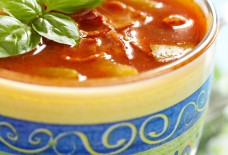Men in The Sun: By Ghassan Kanafani
By: Anthony Bayyouk / Arab America Contributing Writer
Ghassan Kanafani was the spokesperson for the Popular Front For The Liberation of Palestine. Kanafani was born in April 1936 in Acre, which is located in northern Palestine. In 1948 his family was displaced by Zionist forces and fled to Damascus, Syria. Kanafani was only twelve when his family was displaced. Growing up, he worked at a printing press, and distributed newspapers. At night, he studied and obtained an intermediate school certificate in 1953, which led him to work as an art teacher in UNRWA schools in Damascus. Three years later he moved to Kuwait where his sister was living to work as a gym and art teacher. In 1960, Kanafani left Kuwait for Beirut where he worked for the magazine al-Hurriyya. Throughout his lifetime, Kanafani has worked for many newspapers including al-Muharrir, al-Anwar, and al-Hadaf, the movement’s magazine.
Kanafani was one of the founders of the Popular Front For Liberation of Palestine, and that is how he became Liberation’s spokesman. He was assassinated in Beirut by Israeli Mossad in July 1972. Over his lifetime Kanafani wrote short stories, novels, and plays. His books have been translated into sixteen different languages. Kanafani was a Palestinian activist who expressed himself through art, and literature. His legacy still lives on in the Arab World. And he is a role model for all Palestinian activists. Kanafani was only 36 years old when he was murdered but his legacy lives on through his writings. “A commando who never fired a gun, whose weapon was a ball-point pen, and his arena the newspaper pages” (Lebanon’s Daily Star).
In this Arab America Article, we look at the amazing work of Ghassan Kanafani’s “Men in the Sun.”
Men in the Sun
“Men in the sun” was written in 1962 and is one of Kanafani’s most admired and quoted works in modern Arabic fiction. The Novel takes place in a Refugee camp in Iraq. Three men that had lived through the Nakba are trying to find a better life. Through their journey, they meet a man named Abul. Abul can smuggle them across the border of Kuwait. In Kuwait that would get a job and be able to send money back home to their family. On the journey to Kuwait, they had to travel through the desert that was extremely hot during that particular time of the year. Abul and the three men followed in a pickup truck with a metal tank in the back. While they passed the checkpoints the three men would hide in the tank. The heat inside the tank was unbearable. The men made it through the first checkpoint, but at the second one, Abul got stuck in conversion with one of his old friends that worked at the checkpoint. As hard as he tried to end the conversation the security guard wouldn’t let him go. Eventually, Abul was able to leave but it was too late. The three men couldn’t survive the heat in the metal tank.
Men In The Sun has been translated from Arabic to English by Hilary Kilpatric. I am not sure if it can be found in every library, but I was able to find it at American University’s library. The novel also inspired a film named ‘The Dupes’ directed by Tawfiq Saleh.
The three men in “Men in the Sun” struggled to provide for their families after the Nakba, something Kanafani and millions of Palestinians struggled with, and are still struggling with today. Before the nakba, Kanafani’s father was a lawyer, although his family had a high status in society they were not spared. Every Palestinian no matter their social class was treated with the same hardship during the nakba. After the Kanafani family left Palestine they fled to Syria and from there Kanafani had to move all over the Middle East to find work with decent pay. Kanafani reached the peak of his career in Beirut, where he wrote for many different newspapers and politics. If Kanafani had not passed at such a young age his work would have been endless. He is known for his many novels, plays, and articles that are still very relevant to this day. People have taken these novels and created films. His legacy still lives on, he is a hero to the Palestinians and to the entire Arab world because he showed how literature and activism go hand and hand.
Vist Arab America Blog Here.









